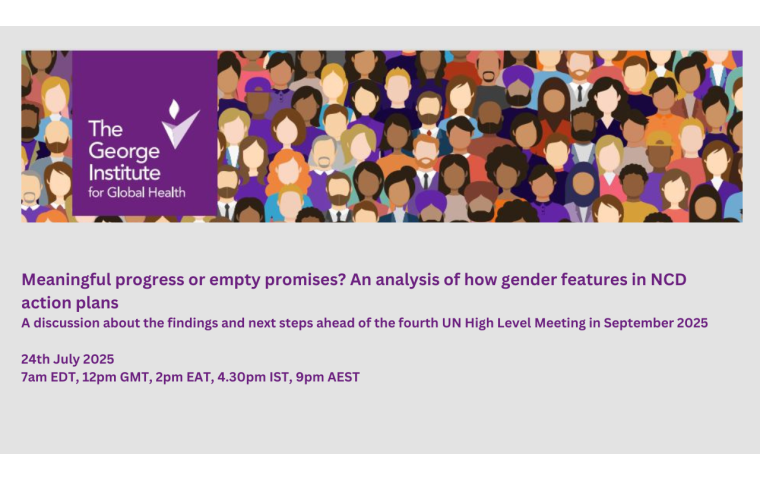Meaningful progress or empty promises? An analysis of how gender features in NCD action plans
Noncommunicable diseases (NCDs) are the leading cause of death and disability for women globally – killing two out of three, accounting for up to 19 million deaths every year. Around the world, girls and women living with or at risk of developing NCDs experience unique challenges in accessing prevention, early diagnosis, treatment, and care, particularly in low-resource contexts.
In recognition of the gendered nature of the challenges, governments around the world have repeatedly committed to take gender-based approaches to the prevention and control of NCDs since the first UN High-Level Meeting on NCDs was held in 2011. But have these commitments led to meaningful progress?
Join us for a timely webinar as we dissect this question ahead of the fourth UN High-Level Meeting on NCDs in September 2025. We will disseminate key findings from a new George Institute policy brief that analyses how gender has been integrated into national NCD action plans.

-
-
The George Institute
-
Sydney NSW
Australia



